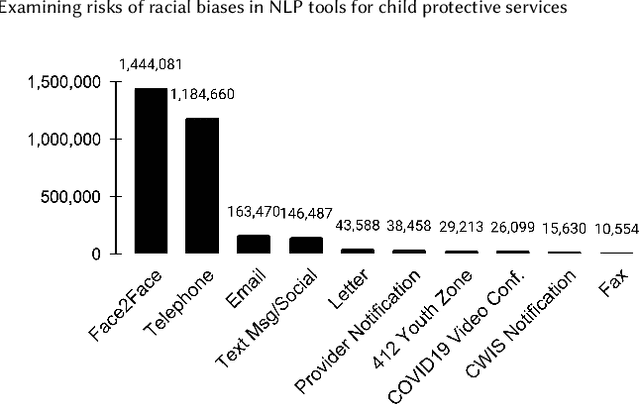Emily Putnam-Hornstein
Examining risks of racial biases in NLP tools for child protective services
May 30, 2023



Abstract:Although much literature has established the presence of demographic bias in natural language processing (NLP) models, most work relies on curated bias metrics that may not be reflective of real-world applications. At the same time, practitioners are increasingly using algorithmic tools in high-stakes settings, with particular recent interest in NLP. In this work, we focus on one such setting: child protective services (CPS). CPS workers often write copious free-form text notes about families they are working with, and CPS agencies are actively seeking to deploy NLP models to leverage these data. Given well-established racial bias in this setting, we investigate possible ways deployed NLP is liable to increase racial disparities. We specifically examine word statistics within notes and algorithmic fairness in risk prediction, coreference resolution, and named entity recognition (NER). We document consistent algorithmic unfairness in NER models, possible algorithmic unfairness in coreference resolution models, and little evidence of exacerbated racial bias in risk prediction. While there is existing pronounced criticism of risk prediction, our results expose previously undocumented risks of racial bias in realistic information extraction systems, highlighting potential concerns in deploying them, even though they may appear more benign. Our work serves as a rare realistic examination of NLP algorithmic fairness in a potential deployed setting and a timely investigation of a specific risk associated with deploying NLP in CPS settings.
 Add to Chrome
Add to Chrome Add to Firefox
Add to Firefox Add to Edge
Add to Edge